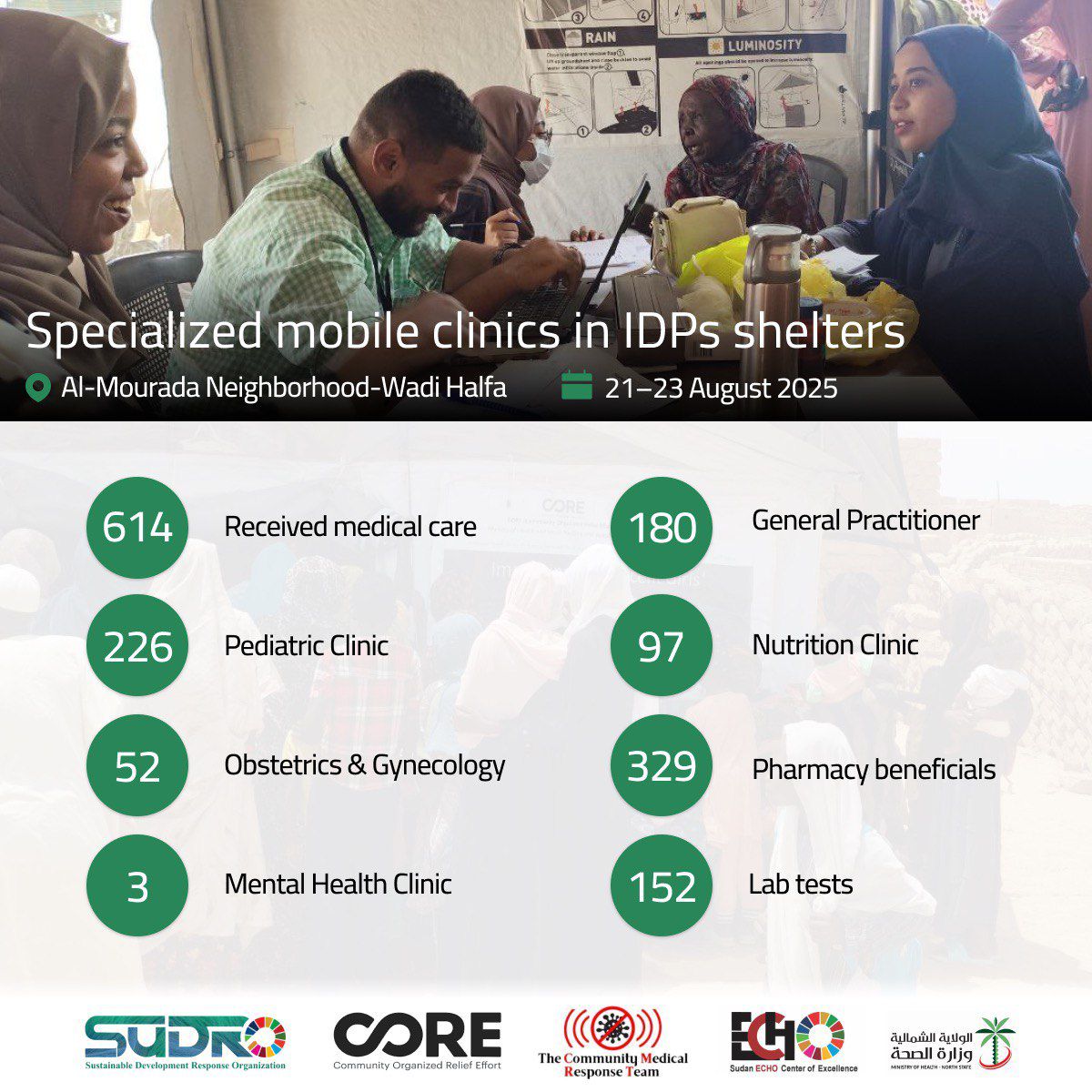As part of its ongoing humanitarian health response in Northern State, SuDRO, in collaboration with CORE and the Wadi Halfa Health Authority, organized a three-day mobile health clinic in Al-Mourada neighborhood, Wadi Halfa, between 21–23 August 2025. The initiative aimed to provide essential healthcare services for internally displaced persons living in overcrowded conditions, with limited access to safe water, electricity, and health infrastructure.
Over the course of the mission, the mobile clinic delivered integrated services in pediatrics, obstetrics and gynecology, internal medicine, general practice, nutrition, and mental health, reaching 614 patients in total. The operation revealed critical health concerns, including a cluster of schistosomiasis cases that suggest a potential outbreak, multiple cases of acute malnutrition among children, and significant gaps in maternal health awareness. Many pregnant women presented with anemia and hypotension, reflecting deficiencies in iron, folic acid, and zinc.
In parallel with clinical services, the team conducted community health promotion activities focusing on hygiene, safe water practices, reproductive health, prevention of schistosomiasis, and addressing harmful traditional practices such as female genital mutilation. Strong engagement was observed, with the community emphasizing the importance of extending clinic services and involving men in health awareness sessions.
Despite challenges related to space constraints, drug shortages, and an inactive referral pathway, the mission was successfully implemented and highlighted the urgent need for sustained interventions. Recommendations included strengthening nutrition programs, enhancing antenatal care, improving supply chains for essential drugs, and expanding preventive measures to control potential disease outbreaks.
This intervention, implemented jointly by SuDRO, CORE, and local health authorities, represents a vital step toward improving the health and resilience of the displaced community in Wadi Halfa, ensuring access to life-saving healthcare and promoting long-term health awareness in a highly vulnerable setting.

